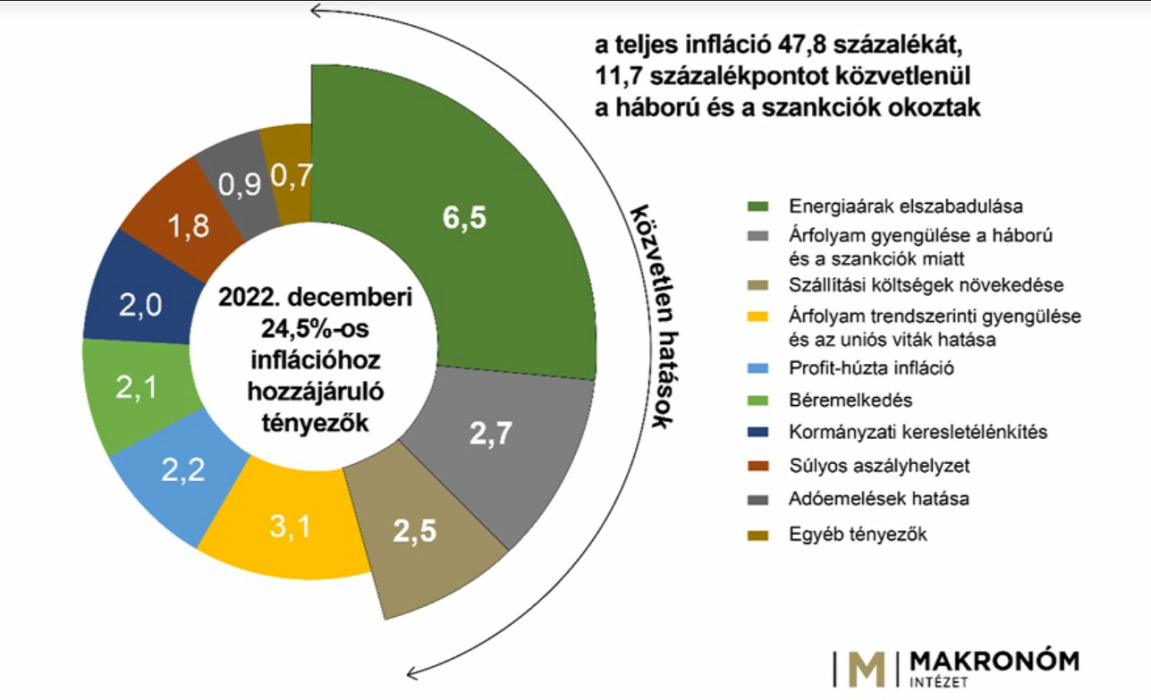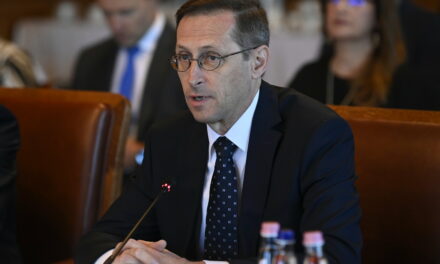"If we want to fight inflation, we have to start with understanding." Prime Minister Viktor Orbán sought the answer to why there is inflation throughout Europe in his annual review speech. The Macronomic Institute examined and analyzed the components of inflation. Based on the breakdown into factors, it can be stated: half of the war and sanctions are directly responsible for the high prices, and half are country-specific factors that can also be indirectly explained to a significant extent by the war and sanctions.
Analyzing the December inflation data, it can be concluded that the war and the sanctions directly contributed to the inflation by almost half, 47.8 percent. According to the ratios shown in the figure, the Makronom Institute has analyzed in detail the individual factors affecting inflation, among which the impact of energy prices stands out. The impact of country-specific factors was responsible for 52.2 percent of inflation in December, but a significant part of them is indirectly related to the war and sanctions.

Source: Macronom
Several factors contributed to the inflation in December: the release of energy prices, the weakening of the exchange rate due to sanctions and EU disputes, the increase in global transport costs, profit-driven inflation due to speculative pricing, to name but a few of the most important factors. The revival of demand at the beginning of last year and the tax increases together explain less than 3 percentage points of inflation.
On the other hand, the rise in energy prices resulting from the war and sanctions, the breakdown of supply chains, and the resulting weakening of the forint were responsible for almost half of the inflation. The other side of the government measures should also be highlighted: in 2022, the government measures, which reached 19 percent of the total value of the budget expenditures, significantly supported the situation of Hungarian families. The increase in the minimum wage and the minimum guaranteed wage at the beginning of the year contributed to a 17.5 percent increase in the average wage, thanks to which Hungary maintained the longest real wage growth among the OECD countries.
Source and full article: Origo











